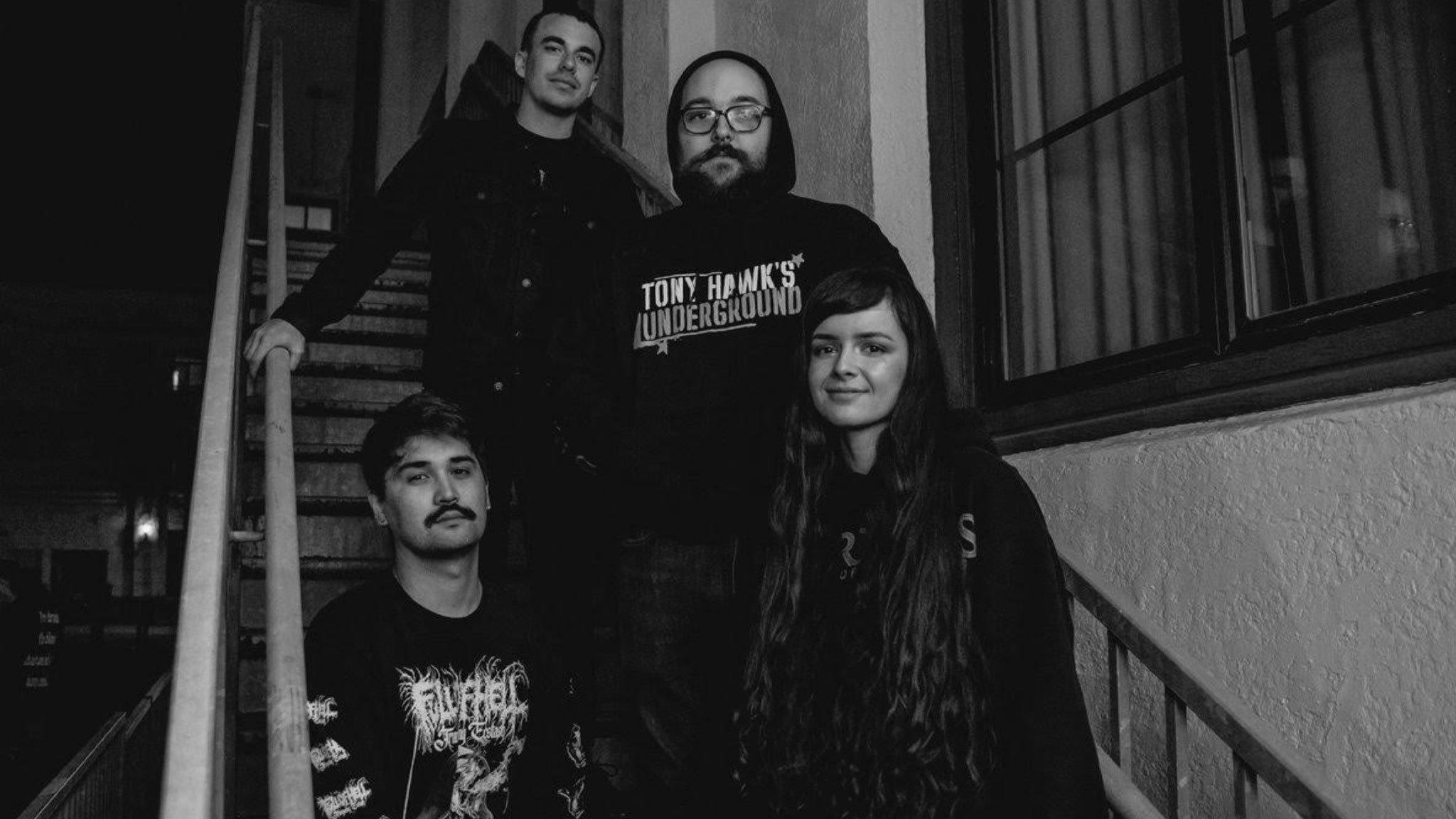Sierra, who is based in San Francisco, had been a fixture of the San Jose scene for some time by that point, her path crossing with guitarist and engineer Charles Toshio, whose resume now features records by Gulch, Scowl and Field Of Flames. Once the two had decided to pool their resources they discovered a sharp creative understanding and a common language that allowed for piercing words to be matched step by step with unrelenting sonic savagery. By talking things out first, unpacking years of trauma as friends, they were able to write No Right in a matter of minutes. “I think I was trying to process my feelings and it was just coming out, you know, in pieces, but he was able to put it together and say what I needed to say,” Sierra observes.
Since then, No Right have only grown more powerful. Their most recent release, two minutes and 20 seconds of cataclysmic noise called Exempt, featured on Volume 5 of Triple B Records’ America’s Hardcore compilation. Here, Sierra’s performance has gone up a couple of notches, with a full-throated roar answering chaotic guitar chug, D-beat sections and a killer mosh call as she proclaims, ‘I won’t go out this way.’
It’s clear that the frustration and isolation of the pandemic has been poured into its housing. Sierra felt that particularly keenly given her geographic dislocation from her bandmates, who are all in San Jose, and the scene she feels most at home in, watching on as her friends’ bands blew up online amid the clamour to fill the space left by the axing of gigs. “For some people, it was great, because it was motivation for them,” she says. “There are people who wrote and put out entire LPs in that time. But for me, I felt like I lost so much motivation because the main part for me was that live experience, playing shows and the energy and everything.
“The comp was that motivation that we needed – I can’t play shows, but we have a deadline, at least,” she adds. “So that was like the one finger holding on to the little thread of hope. We are chopping away at an LP, that’s our goal. We might do a two-song sampler or something, but our next release we’re hoping for a full-length.”
